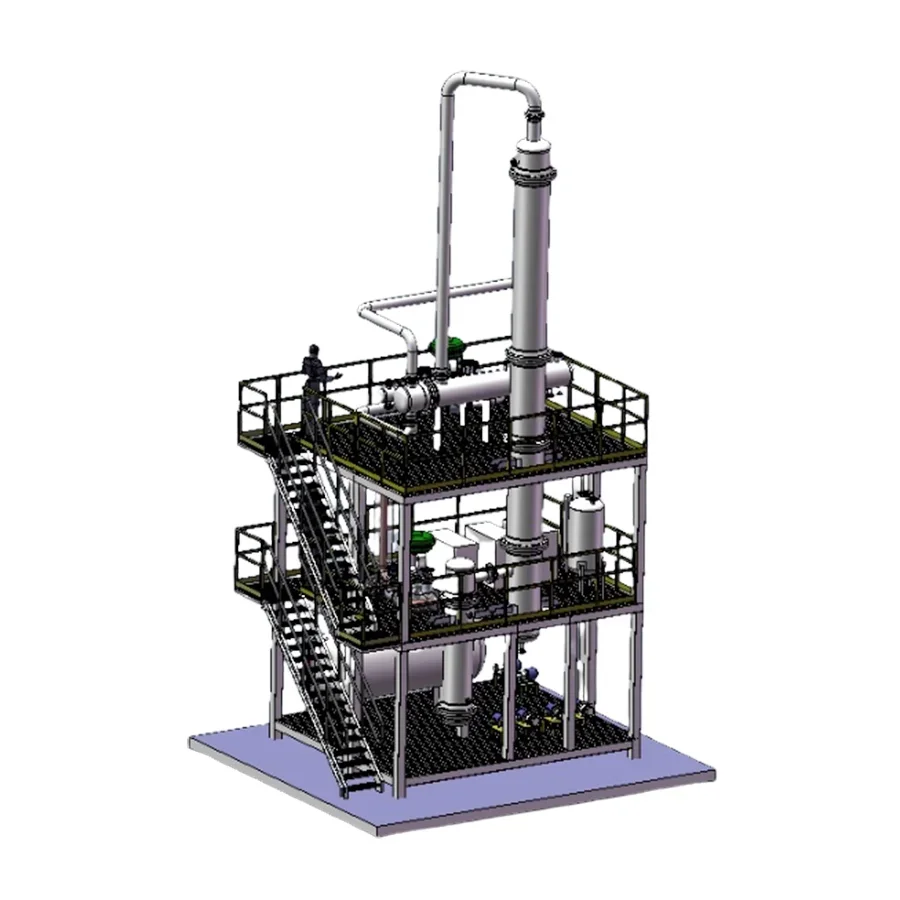In today's competitive industrial landscape, the efficiency and effectiveness of production processes are paramount. Among the critical components that contribute to these efficiencies are separation engineering units. Chem-Unit Technologies Co. Ltd., a company specializing in skid-mounted testing devices, pilot plants, and production units, recognizes the significance of quality separation engineering units in enhancing operational performance. This blog post will explore the importance of these units in industrial operations, emphasizing their role in improving productivity, ensuring product quality, and supporting sustainability initiatives.
Understanding Separation Engineering Units
Separation engineering units are systems designed to separate different components from mixtures based on various physical and chemical properties. These units play a vital role in numerous industries, including chemical processing, oil and gas, pharmaceuticals, and food production. By effectively separating desired products from impurities or by-products, these units help streamline production processes and enhance overall efficiency.
Types of Separation Processes
Separation processes can be broadly categorized into several types, including:
Distillation: A thermal separation process that relies on differences in boiling points to separate components.
Filtration: A mechanical separation method that uses a barrier to separate solids from liquids or gases.
Membrane Separation: Utilizes selective permeability of membranes to separate components based on size or chemical affinity.
Absorption and Adsorption: Processes that involve capturing one substance within another or adhering molecules to a solid surface.
Each of these methods has its own set of advantages and is chosen based on the specific requirements of the industrial application.

Enhancing Operational Efficiency
One of the primary reasons for incorporating quality separation engineering units into industrial operations is to enhance efficiency. These units are designed to optimize the separation process, reducing the time and energy required to achieve desired outcomes.
Streamlining Production Processes
Quality separation units can significantly streamline production processes by minimizing downtime and maximizing throughput. For instance, in chemical manufacturing, effective separation can lead to faster reaction times and reduced cycle times, allowing for higher production rates. This is particularly important in industries where time-to-market is critical.
Reducing Energy Consumption
Energy consumption is a significant factor in operational costs for many industries. Efficient separation processes can help reduce energy usage by utilizing advanced technologies that require less energy input while maintaining high separation performance. For example, membrane separation technologies often consume less energy compared to traditional distillation methods, making them a more sustainable choice.

Ensuring Product Quality
In addition to enhancing efficiency, quality separation engineering units play a crucial role in ensuring product quality. The ability to effectively separate desired components from impurities directly impacts the final product's purity and performance.
Meeting Regulatory Standards
Many industries are subject to stringent regulatory standards regarding product quality and safety. Separation engineering units help manufacturers comply with these regulations by ensuring that end products meet required specifications. For example, in the pharmaceutical industry, high-purity solvents and active ingredients are essential for producing safe and effective medications.
Improving Consistency
Consistency is vital for maintaining customer satisfaction and brand reputation. Quality separation units enable manufacturers to produce uniform products by minimizing variations in composition. This consistency is particularly important in industries such as food production, where flavor, texture, and appearance must meet consumer expectations.

Supporting Sustainability Initiatives
As industries increasingly focus on sustainability and environmental responsibility, quality separation engineering units contribute significantly to these efforts.
Waste Reduction
Effective separation processes can lead to substantial waste reduction by recovering valuable resources from by-products or waste streams. For instance, in oil refining, advanced separation technologies can extract additional hydrocarbons from waste materials, reducing overall waste generation while maximizing resource utilization.
Resource Recovery
Separation engineering units also facilitate resource recovery by enabling the recycling of materials within production processes. By implementing closed-loop systems that incorporate efficient separation methods, companies can minimize their reliance on virgin materials and reduce their environmental footprint.

Successful Application of Separation Engineering Units
To illustrate the importance of large separation engineering units in industrial operations, let us discuss their applications in different fields.
Chemical Processing Industry
In the chemical processing industry, a leading manufacturer implemented advanced distillation columns as part of their separation engineering unit. By optimizing their distillation process, they achieved a 20% reduction in energy consumption while increasing product yield by 15%. This improvement not only enhanced profitability but also aligned with their sustainability goals by reducing their carbon footprint.
Oil and Gas Sector
An oil refinery adopted state-of-the-art membrane separation technology to improve the recovery of valuable hydrocarbons from waste streams. This innovative approach allowed them to recover an additional 10% of oil that would have otherwise been lost as waste. As a result, the refinery not only increased its profitability but also contributed to environmental conservation by minimizing waste generation.
Pharmaceutical Manufacturing
A pharmaceutical company faced challenges with meeting stringent regulatory requirements for product purity. By integrating high-performance liquid chromatography (HPLC) as part of their separation engineering unit, they improved their ability to isolate active ingredients with greater precision. This enhancement led to higher-quality medications while ensuring compliance with regulatory standards.

Conclusion
Quality separation engineering units are essential components of industrial operations that drive efficiency, ensure product quality, and support sustainability initiatives. As demonstrated through various applications across different sectors, these units play a critical role in optimizing production processes while minimizing waste and resource consumption.
For companies like Chem-Unit Technologies Co. Ltd., which specializes in skid-mounted testing devices and pilot plants, understanding the importance of quality separation engineering units is vital for developing solutions that meet the evolving needs of industries . By investing in advanced separation technologies and fostering innovation, businesses can enhance their operational capabilities while contributing positively to environmental sustainability efforts.
In summary, as industries continue to adapt to changing market demands and regulatory requirements, the significance of quality separation engineering units will only grow stronger—making them indispensable assets for achieving operational excellence in today's industrial landscape.
A Comprehensive Guide to Selecting the Right Stirring Vessel Unit for Your Application


